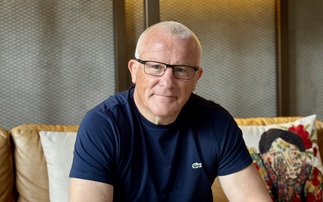Whether you're putting money aside for a rainy day or a world cruise, Melanie Wright's tips will help you make the most of your savings.
When money is tight, it can be tempting to make saving a low priority, but regular saving is still the key to safeguarding your financial security - and achieving your dreams.
Interest rates may be low compared to the previous few years, but the fact that we are in a period of low inflation means it is still possible for savers to earn decent real returns on their money. Real returns are what you are left with once tax and inflation - the measure of the rate at which prices increase - are stripped out.
The first step is to make sure you have some ‘rainy day' money in an instant access account that allows you to get your hands on it immediately if you need to. Ideally, you should aim for a minimum ‘cushion' equivalent to six months' salary to tide you over in the event of job loss, illness or other financial emergency.
When choosing an account, remember to check that your money is protected by a compensation scheme. Deposits with all banks and building societies authorised to trade in the UK by the Financial Services Authority (FSA) are covered by a statutory safety net called the Financial Services Compensation Scheme (FSCS). This can pay compensation of up to 100% of the first £50,000 of losses per person.
If you have more than one savings account, check which financial institutions provide them, as some banks offer several different brands under the same umbrella and are regulated by the FSA as the same bank. You can check how your bank is authorised by calling the FSA helpline on 0300 500 5000.
Make sure you review your savings accounts regularly to ensure you are still earning a competitive rate of interest. You've worked hard to earn your money, so it should work as hard as possible for you too.
Finally, with the start of the new tax year, savers should be looking to make the most of their annual tax-free Individual Savings Account (ISA) allowance. Remember, the limit is now £10,200, allowing you to save up to £5,100 in a cash ISA and the remainder in a stocks and shares ISA.
3 steps to saving more
1. Go through your bank statements and reduce your outgoings as much as possible - are you paying for a gym membership you never use, or a magazine subscription you could do without? Divert this money into a savings account.
2. Set up a standing order or direct debit to pay a set amount into a savings account every month, as soon as you get paid. It means no effort on your part and, after the first month or so, chances are you won't even miss the money.
3. Learn how to budget. Set yourself a limit on spending each month so that you have more cash to put into your savings.
What's your savings goal?
Here's what you can expect to pay for a...
Three-year University course (in England or Wales, including course and living costs): £43,100
(Based on National Union of Students figures)
Adult gap year: £6,000-£9,000
(Source: Mintel)
Loft conversion (depending on the complexity of the job, your location and the finish you want): £30,000+
(Source: Federation of Master Builders)
Round-the-world cruise (with a mid-range cruise line): £15,000
(Source: Passenger Shipping Association)
Wedding: £19,265
(Source: You and Your Wedding magazine)












